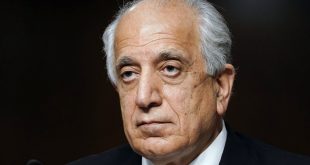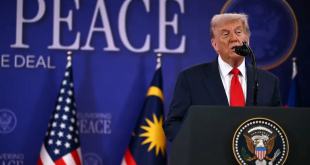By Akhtar M. Nikzad-In Afghanistan many people live below the poverty line and a huge portion of the population barely meets daily needs with what they earn. Access to education and healthcare services has become a dream for many. Public health sector infrastructure has failed to meet demands of the public. However, the government has also been failed to prevent the private medical clinics from fleecing people.
Poor monitoring and control of private clinics by Ministry Public Health (MoPH) in the capital city has given free hand to the doctors to charge high fee from patients. Though it has provoked public, but the authorities are reluctant to come into action.
A number of Kabul residents told Afghanistan Times that the majority of doctors in the private clinics ask patients for high fee and seldom give proper time to the patients for a checkup, however, the health ministry has turned a blind eye.
They also claimed that the majority of doctors examines more than 50 patients into four hours—from 4:00 to 8:00 pm per day—and they do not treat patients properly. For the residents this practice is called “playing with the lives of people”.
Sharing his personal experience with Afghanistan Times, Nawdi Ahmad said that majority of the clinics are dirty where condition of patients deteriorates further.
“I don’t know the Ministry of Public Health has regulation for doctors to observe when they are at clinics. I think there are no rules for doctors to follow because they write only prescriptions and charge high fee from poor patients. Sometimes they take a fee according to their own set categories that change frequently. The more you look smart the more fee you have to give,” he said.
Najiba Frotan, another resident of Kabul City, asserted that some doctors who examine patients in their clinics refer their prescriptions to their relevant pharmacy store and they do not accept medicines bought from other pharmacy stores while their drugs are sold at a higher price as compared to the other drug stores.
“Some doctors have opened medicine stores in their clinics. When the patients buy medicines from other pharmacy stores, doctors say that the quality is low or its company is not standard, but how it is possible to trust the drugs that they are selling,” she said.
Amirshah Nawabi, who had gone to Pakistan for his treatment due to inappropriate behavior of doctors and their unprofessionalism, said that some doctors attract the attention of people by writing that they are expert and had many degrees.
He said that some doctors say that they studied in foreign universities and so on, but in reality they do not know how to treat patients.
“When you go to the next doctor to examine yourself, you see more than 20 patients are checked in one hour. They act and show as they are very expert, but in reality they prescribe medicines that are enough even for thirty patients. The dosage is high and most of the medicines have same formula,” he said.
The residents of Kabul urged the Ministry of Public Health to pay attention to the problems and monitor the private clinics on a regular basis in order to help the patients. They said the doctors should be made binding to charge a minimum fee as most of people are people.
The locals also urged the ministry to check degrees of the doctors because many clinics are run by medical technicians and nurses rather than surgeons and qualified doctors. The ministry was urged to direct the doctors to give proper time to patients and prescribe few medicines.
Minister of Public Health, Ferozuddin Feroz, acknowledged that patients are exploited by doctors at private clinics as needy people are forced to pay high fees. He said the ministry would regulate the private clinics and direct the doctors to keep the problems of the patients in view and give more time to them.
He said that a draft has been prepared to regulate the clinics and doctors’ fee. The minister said the draft is now in the Ministry of Justice for evaluation and the regulations would be approved the Council of Ministers soon.
Feroz said the people would see a visible change after the regulation was approved.
 Afghanistan Times Latest News and Analysis from Afghanistan and the Region
Afghanistan Times Latest News and Analysis from Afghanistan and the Region




